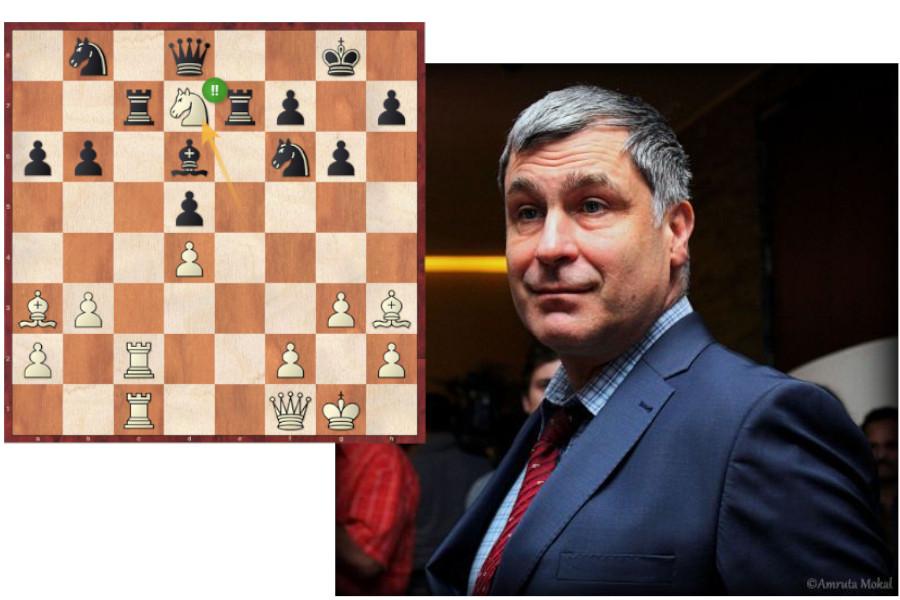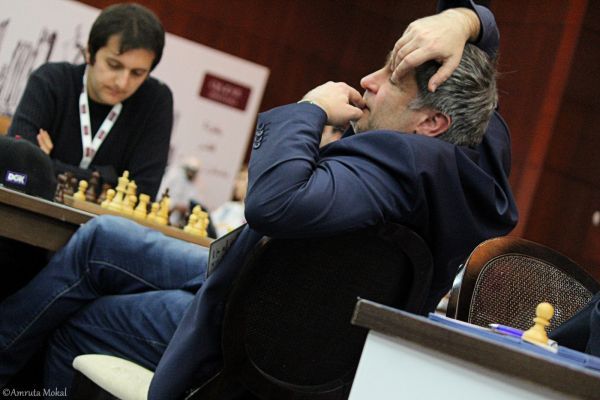


[Note that Jon Speelman also looks at the content of the article in video format, here embedded at the end of the article.]
A week and a half ago, Daniel King highlighted an utterly brilliant move by Vasyl Ivanchuk here in his Power Play Show. Dan analysed the game in detail and, while I am going to show it here too, it will be briefly, and as a stepping off point for other examples.
It is a pleasure though that I really couldn’t deny myself. Of all the players that I’ve ever faced over the board, I’ve always considered Ivanchuk the most talented, with no exceptions (not even if their names started with K). And had he but had reasonable nerves, let alone good ones, then I believe that he would surely have become world champion.

The inimitable Vasyl Ivanchuk | Photo: Amruta Mokal
Sadly, though, for all his coruscating brilliance Ivanchuk has always been subject to bad moments too (not against me personally because he knew that he had my number). And Jorden Van Foresst recovered from what must surely have been a shock to rally and not only draw but even win as Ivanchuk wilted.
Ivanchuk’s coup was a sort of “super-Novotny”, and Dan added a couple more examples of this theme in his column (including a very famous game Eliskases v Hoelzl). Named after Antonin Novotny (1827-71), it’s an interference theme which occurs in chess problems and studies and sometimes over the board too. Rather than writing my own definition, I lazily looked on Wikipedia and found an admirably clear exposition:
A piece is sacrificed on a square where it could be taken by two different opposing pieces, but whichever makes the capture, it interferes with the other.
I started going through my own tactical database looking for some more, but they were few and far between, and I gave up after finding just one more in a couple of hundred examples. But then I began thinking less unintelligently (using my memory for example) and found several more, including a couple mentioned in the said Wikipedia article, some studies (which have been used here at some stage in the past) and a problem.
I should add that some of them are not pure Novotnys, but deflections with elements of the Novotny. (In some variations the lines are blocked, but in others, pieces are dragged by force away from their starting squares, thus losing their functionality).
Select an entry from the list to switch between games
| Advertising |